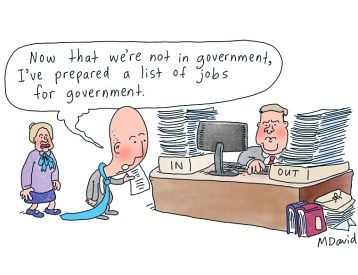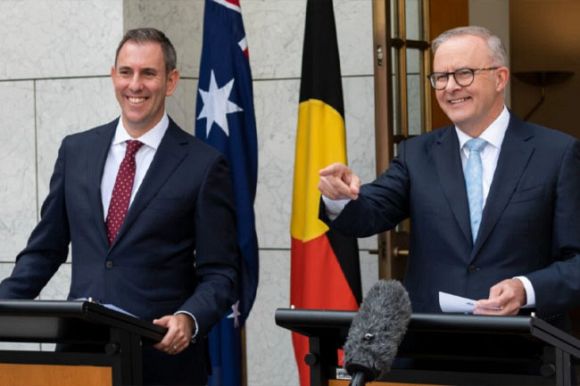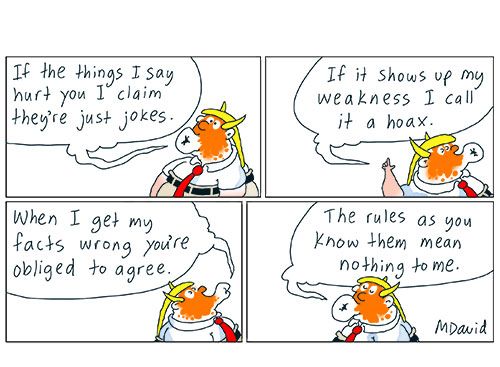The latest official data confirms the Albanese Government is achieving sound economic outcomes and also fixing entrenched injustices, Alan Austin reports.
WITHIN ITS FIRST year in office, the Albanese Government has ensconced Australia in the exclusive club of growth economies while simultaneously changing how the national income pie is carved up. That’s according to the quarterly national accounts recently released by the Australian Bureau of Statistics (ABS).
We say "growth economies" because there is no longer a club of "high growth economies" in these internationally troubled times.
Low economic growth but still positive
Australia’s growth in gross domestic product (GDP) for the three months to June was reported at 0.36% for the quarter and 2.07% for the year. These are marginal declines from the previous quarter, but show an improvement in global rankings.
Annual GDP growth now ranks ninth in the OECD, up from 11th last quarter, having crept ahead of Norway, Spain and Colombia but slipped behind the USA. This is a vast improvement on ranking 31st – out of 38 countries – which was where Australia ended up under the Coalition.
The annual rate of 2.07% is below Australia’s 25-year average of 2.90%, but nearly treble the current OECD average of 0.71%.
In the June quarter, 15 OECD members registered negative or zero growth. Even the Netherlands has now fallen into recession with two consecutive reversals, while Estonia, Germany, and Hungary remain in recession.
Australia has now enjoyed seven consecutive quarters of positive quarterly GDP growth. The only other OECD economies to have achieved this are Belgium, Mexico and Slovakia.
Positives and negatives
Australia’s economic growth for the June quarter was below population growth, so GDP per person actually declined. Had the Albanese Government not boosted migration and overseas students dramatically, the situation would certainly be worse.
Disturbingly, productivity is not just stagnating, as happened through most of the Coalition period, but is now going backwards.
Household savings have declined significantly, although this may also indicate that citizens are less nervous about their financial future.
On the plus side, business investment improved, non‑dwelling construction was lifted by welcome renewable energy projects, and public sector infrastructure is moving again.
Strong rise in household spending
A handy measure of living standards is household consumption expenditure. This is the income families or individuals get to spend on necessities and luxuries after paying all direct taxes. For most families, the higher the better.
This variable increased only slightly in the June quarter. which Labor’s critics were quick to disparage unfairly. But it jumped over the full year to June by 5.4%, the strongest rise since 2004. The average annual rise through the Coalition years from 2014 to 2022 was just 1.76%. The average through the preceding Rudd/Gillard Labor period was 2.87%, an excellent result given the global financial crisis.
Families can of course be forgiven for not feeling as well-off due to higher prices of many essentials. But at least the Government is prioritising benefits to the lower end of the income spectrum, and the trend is in the right direction.
Share of income going to bosses and employees
Workers can be mightily encouraged by confirmation in the national accounts that their share of the country’s income is still increasing. The lift in their slice of the income pie first observed last March is continuing. Strongly.
The right side of our graph now shows a definite shift in the percentage of what the ABS calls total factor income, seasonally adjusted, going to workers versus profits. Since June 2022, the employees’ share has risen from 48.7% to 51.7%.
That three percentage points rise is the highest over any four quarters since Gough Whitlam radically re-organised the kitchen in 1974.
Commensurately, the slice going to corporate profits has declined over the full year by 2.54%. The last time that happened was also under Whitlam.
There is still a way to go until the workers’ share returns above 53%, as during previous Labor governments, and even most Coalition administrations prior to the dismal Turnbull and Morrison years. So we shall monitor this.
Chalmers' results overall
Given all the challenges domestic and global, Treasurer Jim Chalmers is presiding over increasingly impressive outcomes.
Inflation for the year to the end of July has moderated to 4.9%, down from 5.4% in June and a disturbing high of 8.4% in December.
The August jobless rate was 3.69%, down slightly from 3.72% in July, bringing the average for the last twelve months to a notable 3.57%. Dr Chalmers is the first Australian Treasurer to achieve a 12-month average below 4.5%.
Monthly exports have remained well above $50 billion every month so far. Strong results are now being recorded in education and tourism exports, as well as commodities and energy. Trade has been in positive balance throughout the Albanese Government’s term, with all monthly tallies above $8 billion. This places Australia in the OECD’s top six on trade balances, along with Ireland, Norway, Denmark, the Netherlands and Italy.
Building for the future
In IA’s last quarterly analysis, we urged the Treasurer to consider ‘a bold national program to build a million low-cost houses’. We argued this would address poverty among low-income Australians due to high rents; intending first-home buyers thwarted by house prices; declining housing investment; falling productivity; unemployment creeping up; inflation worsening by rising rents; lethargic corporate innovation; and low economic growth.
Chalmers has now announced a new target for the Housing Accord with the states, setting it at “1.2 million new well‑located homes over five years from 2024”.
This is an excellent development we will continue to monitor.
Alan Austin is an Independent Australia columnist and freelance journalist. You can follow him on Twitter @alanaustin001.
Related Articles
- Labor fails on the environment at national conference
- Governing for the people: Gough had the guts to get things done
- Hope for mabu liyan, a healthy national spirit, at last
- Labor will ignore its mandate on climate unless activists apply pressure
- The mother of all parliaments as Labor honours labour
 This work is licensed under a Creative Commons Attribution-NonCommercial-NoDerivs 3.0 Australia License
This work is licensed under a Creative Commons Attribution-NonCommercial-NoDerivs 3.0 Australia License
Support independent journalism Subscribe to IA.














